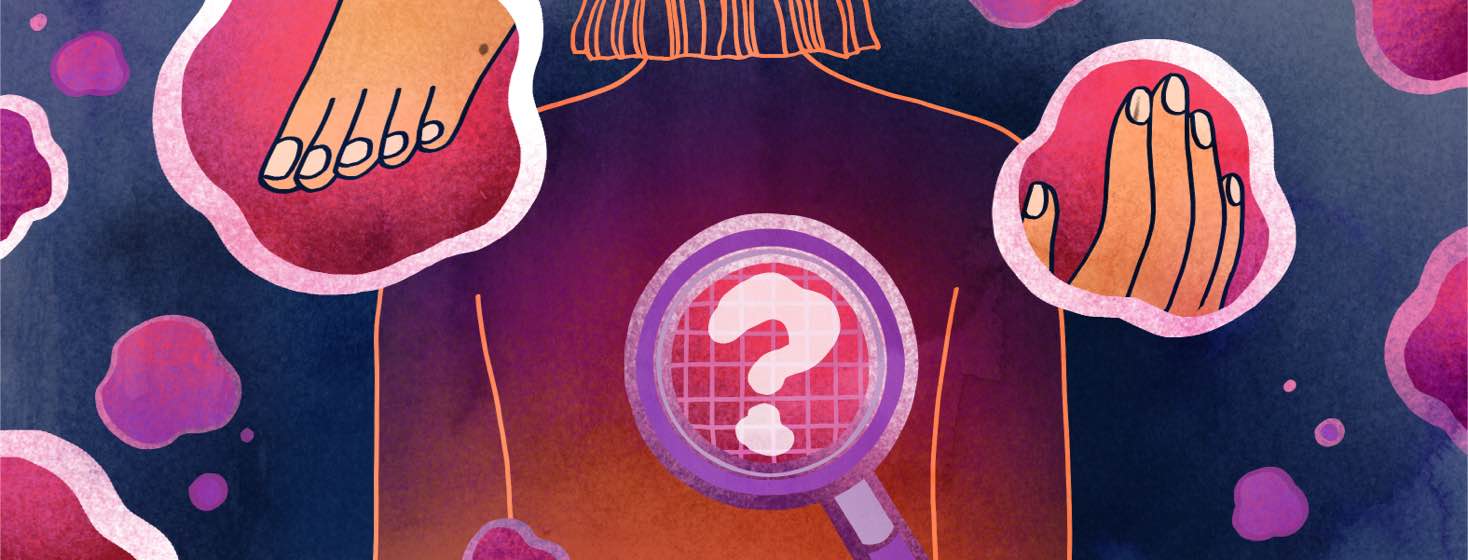Melanoma Isn’t Always Just in Moles
Melanoma is a serious type of skin cancer and is frequently caused by exposure to ultraviolet radiation, either from exposure to tanning beds or to sunlight, and is frequently found on the face, arms, legs, or back. These all areas that may receive more sunlight than other body parts. Many people associate the symptoms of melanoma with moles, but melanoma can present in other ways.
Let's use the alphabet trick
You may be familiar with the ABCDEs to help identify melanoma:
Asymmetry
One half of the spot is unlike the other half.
Border
The spot has an irregular, scalloped, or poorly defined border.
Color
The spot has varying colors from one area to the next.
Diameter
While melanomas are usually greater than 6 millimeters, or about the size of a pencil eraser, when diagnosed, they can be smaller.
Evolving
The spot looks different from the rest or is changing in shape, size, or color.
Melanoma isn't always a mole
The symptom that people most commonly associate with melanoma is a mole. When someone says they were diagnosed with melanoma, a typical thought might be that it was found in a mole that had changed shape, size, or color. That isn’t always the case, though, as melanoma isn’t always found in a mole.
There are other warning signs
According to the Skin Cancer Foundation, other warning signs for melanoma may include a sore that does not heal; redness or swelling beyond the border of a mole; itchiness or pain in an area; oozing or bleeding of an area on the skin, or the appearance of a lump or bump. Melanoma can also present as an odd-colored patch of skin.
It's not always where you might think
Melanoma, though, can also form in places that people may not expect. It can be found on areas that do not receive much sun exposure, such as the palms of the hands or the bottom of feet. Additionally, melanoma may show up as dark streaks under fingernails or toenails. This typically is on the thumb or big toe but can be on any finger or toe.
There are also rare types of melanoma
Mucosal melanoma is a rare but aggressive melanoma of the mucous membranes. It can present as sores in the mouth or nose, which may initially look like small bumps but then turn into infected-looking areas and may be mistaken for bug bites or cold or canker sores. It can also be found in the urinary tract, vagina, or anus. According to the Memorial Sloan Kettering Cancer Center, additional symptoms may include nose bleeds, lumps in the neck, jaw, or mouth, or anal bleeding, constipation, or diarrhea.
Ocular melanoma
Melanoma can also be found in the eyes. Ocular melanoma may show up as dark spots or lines on the iris of the eye. It may also be noticed due to a change in the shape of the pupil in one eye, a change in vision in one eye, or “floating” specks in vision.
Be on the lookout
The lesson here is to not get too confident if you don’t have any moles that are changing shape, size, or color. Melanoma can take on numerous forms, and it is important to have regular skin checks with a dermatologist (and also to have regular eye exams with an ophthalmologist), as early detection and treatment for melanoma provide the best chances at recovery.
Have you ever been diagnosed with melanoma? Share your story with us in the comments.

Join the conversation